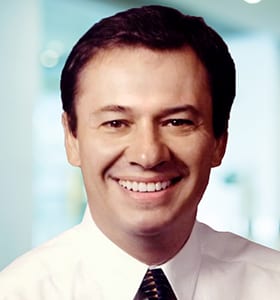What Is Traumatic Stress Disorder?
Post-traumatic stress disorder (PTSD) develops in some individuals who have experienced a scary, surprising, or life-threatening event. During and after a traumatic situation, it is natural to feel like you are afraid. This response is called “fight-or-flight” and is meant to protect a person from harm’s way. Most people recover from the initial symptoms naturally, but those who suffer from continued problems may be diagnosed with PTSD. Fear and stress when not in danger are the most common symptoms of PTSD.


Traumatic Stress After an Auto Accident
After a car accident, you may be mostly focused on physical injuries that could have occurred. Most car accident victims pay little attention to the effects of the auto accident on their mental and emotional health. Unfortunately, there is not enough attention paid to auto accident victims who are injured mentally or emotionally due to trauma of the collision or physical injuries.
Symptoms of Traumatic Stress After Auto Accident
Although they may not have an official medical diagnosis, victims from a car accident can experience emotional distress. Symptoms of emotional distress can include:
- Anxiousness
- Mood swings; anger
- Feeling of anguish
- Fear
- Loss of appetite
- Lack of interest in normal activities
- Moments crying
- Sleep problems; nightmares

It’s important to speak with a trauma psychiatrist if you are experiencing the symptoms above after an auto accident or traumatic event. An individual’s life can be severely interrupted by making it difficult for them to attend school, go to work, or simply get out of bed in the morning. Some may not even be able to get back into a vehicle because of fear of another accident. Traumatic stress can be temporary, but for some, it can continue to persist, especially if they are reminded of physical injuries that may have occurred.
Trauma Psychiatry for Post-Traumatic Stress Disorder
A victim of an accident may require regular therapy for a certain period of time. They may also need pain management medication or potentially other aids to assist them in returning to their normal lives.
There are three main goals in traumatic stress therapy:
- Restore self-esteem
- Improve symptoms
- Teach coping skills
Most of these trauma therapies would be categorized under the discipline of cognitive behavioral therapy. The goal is to fundamentally change the thought patterns that are causing a disturbance in your everyday life.
Types of Trauma Therapy Treatment
Medication – People suffering from PTSD process “threats” in their brains differently than normal. The reason can be, in part, because the balance of chemicals in your brain can be out of whack. Individuals suffering from PTSD can easily have their “fight or flight” response triggered, which is why they may seem on-edge or jumpy. Medications prescribed by a board-certified trauma psychiatrist can help you stop thinking about and reacting to the accident or trauma that happened. These medications can also help you feel normal again and have a more positive outlook on life.
Experienced Trauma Psychiatrist Dr. Hector Samaniego
Dr. Samaniego attended Medical School at the University of Southern California/UTESA and completed his first residency in family medicine at the New Jersey College of Medicine at St. Mary’s Hospital in Hoboken, NJ. He then followed up with a residency in Adult Psychiatry at Columbia University. Having practiced psychiatry and trauma psychiatry for over 30 years in San Antonio, Dr. Samaniego has treated thousands of trauma patients with advanced PTSD therapies. He has also deposed over a thousand cases related to car accidents. Dr. Samaniego is regarded in the community as the accident and trauma expert and has an excellent network and team of medical professionals who are willing to work under a letter of protection. Suffering from accident-related trauma? Contact our clinic today!


